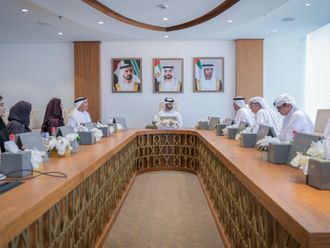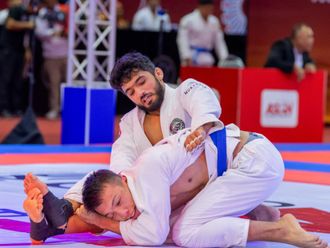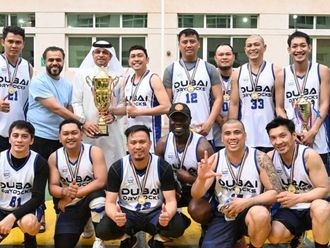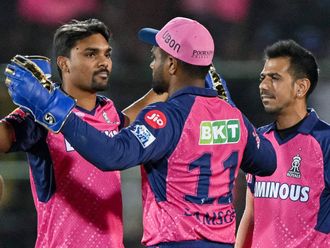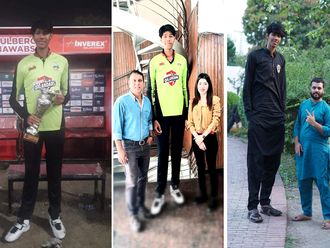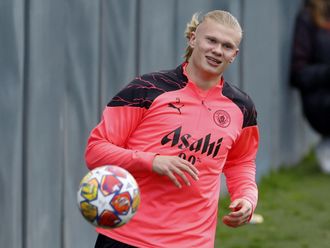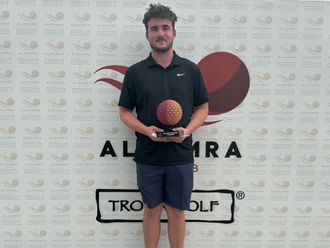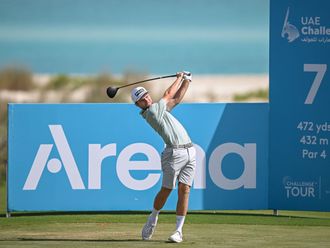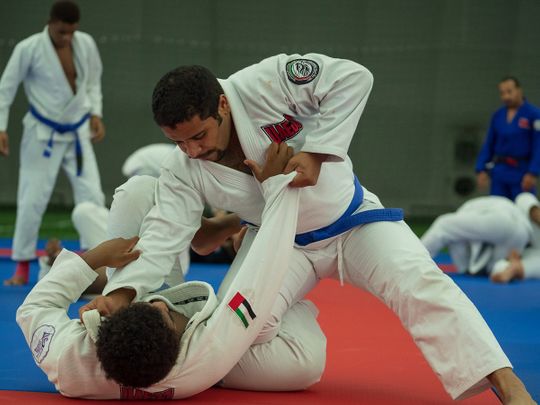
Abu Dhabi: Just a few months into his role as physiotherapist with the UAE Jiu-Jitsu Federation (UAEJJF), physiotherapist Hiten Maisuria has been impressed by the passion shown by the country’s top athletes in their pursuit of glory on the mat.
Abu Dhabi is now the recognised global home of jiu-jitsu and thanks to the efforts of the UAEJFF, the sport’s soaring popularity continues apace. While Maisuria may just be getting started on his jiu-jitsu journey, the 32-year-old experienced sports medicine professional, has wise words on how to obtain longevity in the physically demanding combat sport.
Maisuria, a British national who previously served as academy physio at English Football League Club Queens Park Rangers working with the club’s young players, is enjoying his early days with the UAE’s jiu-jitsu talent advising fighters, experienced and budding, on how following a consistent training regimen and allowing your body to gradually prepare for competitions, while incorporating sport-specific physical conditioning drills into daily routines, will help them last longer and stronger on the mat.
“I have just started and so far it has been a fun and challenging experience at the same time. It has been great working alongside the coaches and fighters in a fun working and learning environment,” Maisuria said after joining a high-quality technical team at the UAEJJF, in May.

Building up grip strength will see a fighter improve his ground fighting and guard fighting attributes while improved muscle endurance will guard against loss of strength and muscle fatigue during holds
“My advice to fighters is to make sure to plan throughout the year to avoid spikes in training loads. If you are a beginner, that means trying to get in an hour of practice on the mat or doing conditioning work every day. Your body needs to adapt to contact sport, being strong around the shoulders, legs, torso, and pelvis will work towards your advantage,” he added.
While conditioning the body is crucial for success in sport, the physio stresses that it is also important to find the right balance between dedication and overdoing things, while not forgetting the all-important sleep factor.
“Above all else you should enjoy jiu-jitsu and all the relationships and friendships that you can build through this amazing sport. Don’t forget that sleep is a very important ingredient in any athlete’s success and getting seven to nine hours of sleep every night is essential,” he noted.
Maisuria’s first assignment was the UAEJJF-organised closed training camp that saw 60 elite jiu-jitsu fighters reconvene after an enforced break, and it was a quick learning curve for the physio.
“During the three-week camp it was the perfect time to build a rapport with the fighters because a therapeutic alliance (between a physiotherapist and an athlete) has been shown to enhance recovery and help athletes achieve a level of high performance,” he added.
So, what is the key to maintaining peak performance? “It is important to have a well-rounded training programme to be in prime condition on the mat. A mix of aerobic and anaerobic training is recommended for jiu-jitsu fighters. It will allow a fighter to maintain intensity through a bout and improve his recovery between bouts.
“Also, grip strength and muscle endurance are areas that do not get a lot of attention but are crucial. On average, fighters need to maintain strong grips of 45-50 kgs on their opponent for an average of 50 seconds and work through prolonged holds during bouts. Building up grip strength will see a fighter improve his ground fighting and guard fighting attributes while improved muscle endurance will guard against loss of strength and muscle fatigue during holds,” he disclosed.
“Flexibility is also an area that fighters need to concentrate on. Building up flexibility in the middle and lower back, and hamstrings will give you an advantage when you are in the pass and guard positions, two of the most common positions in jiu-jitsu,” Maisuria added.


